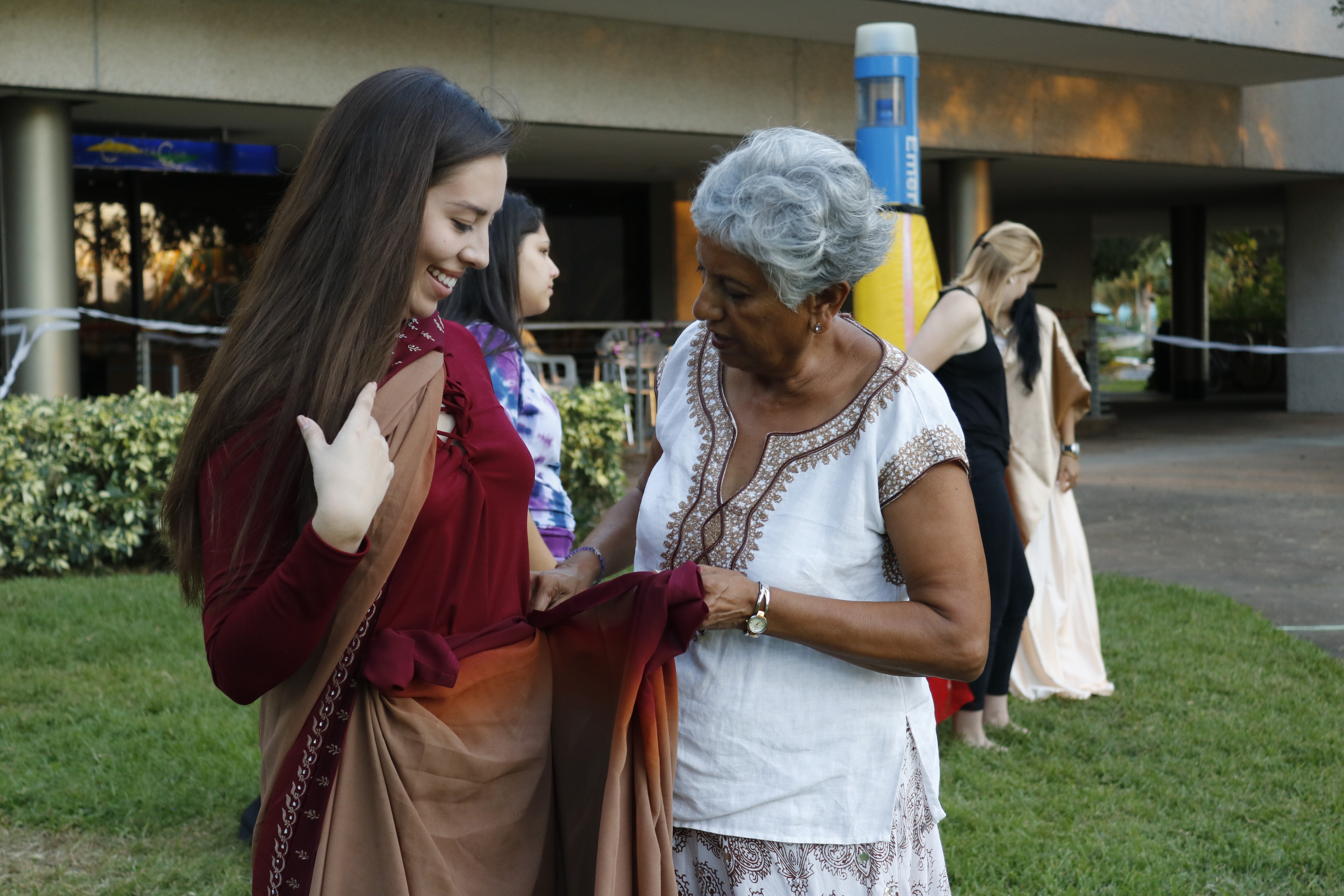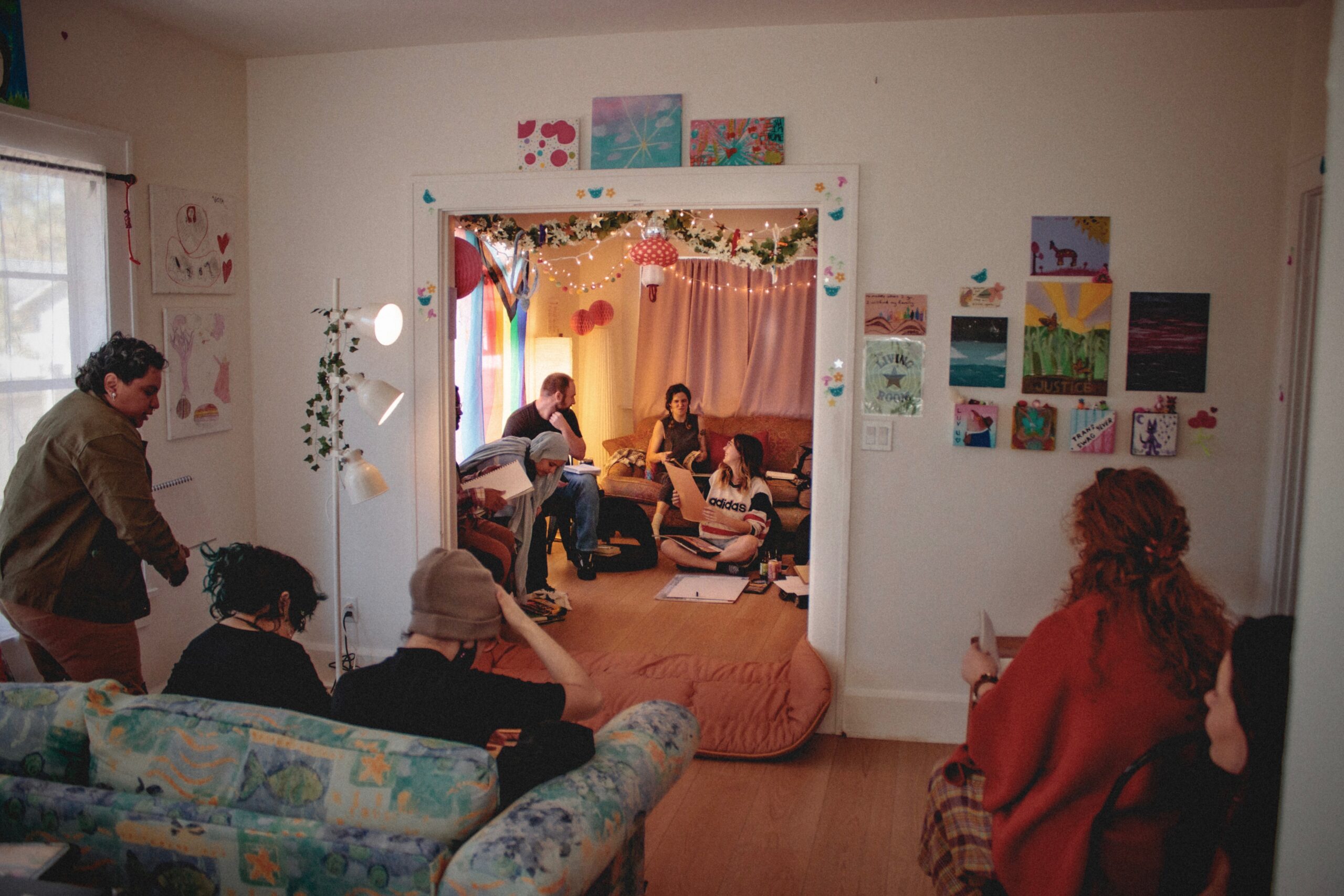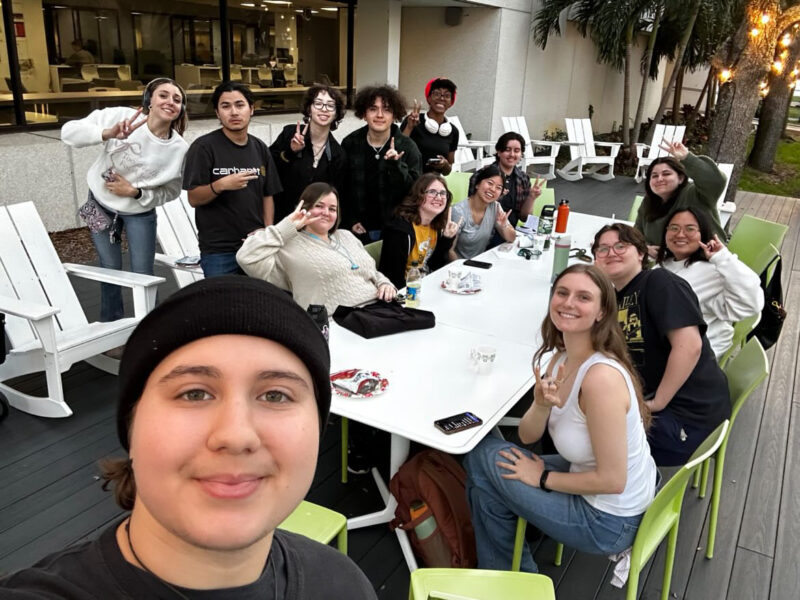As a freshman, Radhika Dang attended her first Diwali celebration on campus. The scheduled dancers canceled, but that didn’t stop her from celebrating. Dang stepped in and performed an impromptu dance.
“It was really cool, each year it has kind of been like, ‘Oh those girls? They did the Diwali festival.’ Everybody kind of got the gist of it,” Dang said.
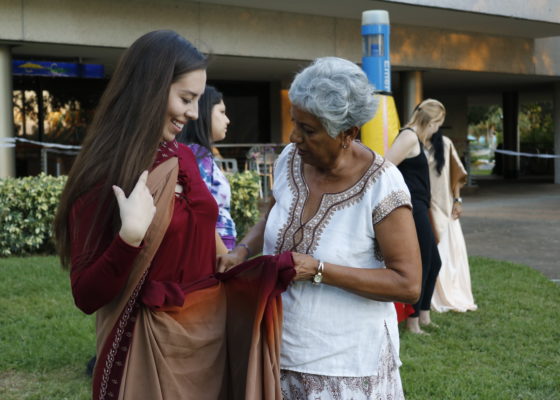
Now a graduate student and the president of the USFSP South Asian Association, Dang takes a much bigger part in the event. She performs with her team for the festival.
South Asian Association (SAA) and Multicultural Activities Council (MAC) partner together to throw the event every fall.
Diwali is celebrated in the fall. The university’s Diwali celebration took place on Friday, Oct. 28, but the official Diwali date for this year is Sunday, Oct. 30. Music, food from a local restaurant called Gateway to India, airbrush T-shirts and dancing filled the campus waterfront.
Diwali, or the Festival of Lights, is known as one of the most cherished holidays in India and Nepal. It is recognized as an official holiday in Fiji, Guyana, India, Pakistan, and various other countries.
According to SAA and MAC, the celebration takes place over the course of five days, but the main festival activities align with the darkest new moon night of the Hindu Lunisolar month, Karlika.
Diwali also marks the beginning of the new year in India, and while the festival is celebrated many different ways, prayer plays a big part.
Amari Hunt, the traditions chair for MAC, said that planning the event could be tedious but that putting in the effort was worth it.
“The most important part is the information students take away from it, and that we celebrate Indian culture,” Hunt said.
The event was open to the community, not only USFSP students.
Dang and her club also worked to prepare for the event and their three performances.
“We had rehearsal four to five times each week for anywhere from 1 to 4 hours,” she said.
Dang founded SAA three years ago and serves as the group’s choreographer.
Dana Estrada, a junior and business management major, attended the event because she’s involved in MAC and is intrigued by Indian culture. At the Diwali celebration, she learned more and even participated in the sari-tying contest.
“They’re beautiful, but it was very difficult to tie without any help,” Estrada said.
This is Estrada’s first semester as a member of MAC. She also sees the benefits of getting the word out about other cultures.
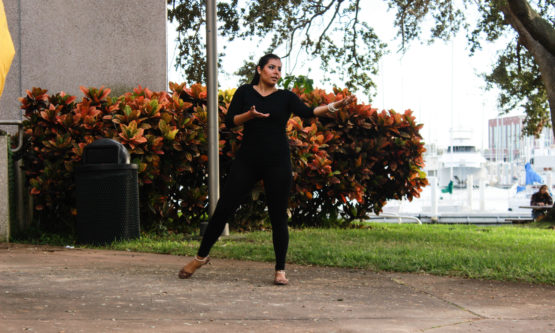
“Exposing people to other cultures and the great things they have to offer is important,” she said.
Dang said of the two big events SAA works on, the Diwali celebration is the hardest because there are a lot of different hands-on activities to plan. Now, the club will begin planning for the spring semester event, the Holi Festival.
Dang has been celebrating Diwali her whole life, but when she’s at home it’s a little bit different.
“The only difference is we wouldn’t be dancing, we’d be sitting together and cooking. Then we’d have the prayer ceremony because we have a small family, [and] we’d go out and light candles. It would be very different than this.”
After, her family lights fireworks which she says is a huge part of Diwali.
“[This] celebration won’t be as big but I consider USFSP to be my family too,” said Dang. “I would say all these people are my family.”
Celebrated all over the world, Dang seemed certain that Diwali’s hallmark enthusiasm is championed by all who recognize the holiday.

